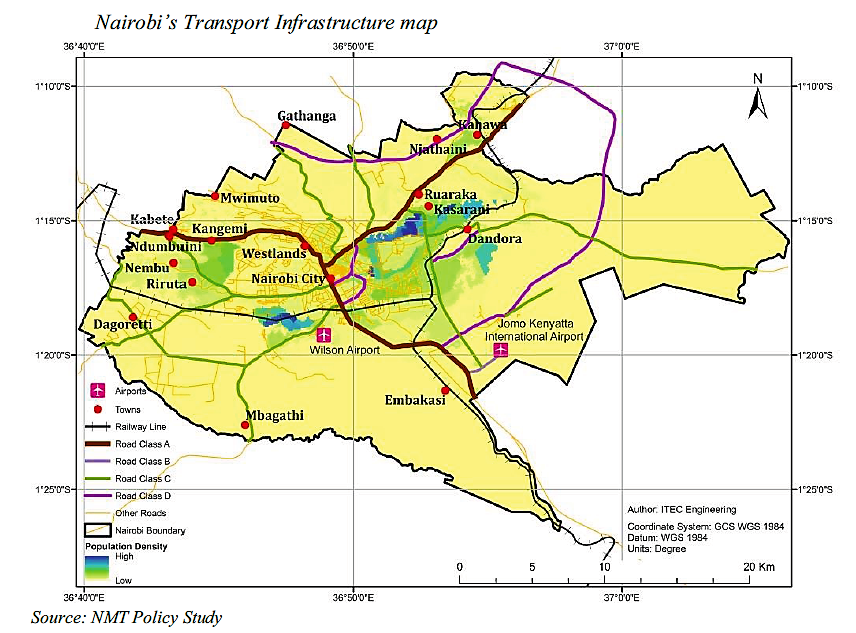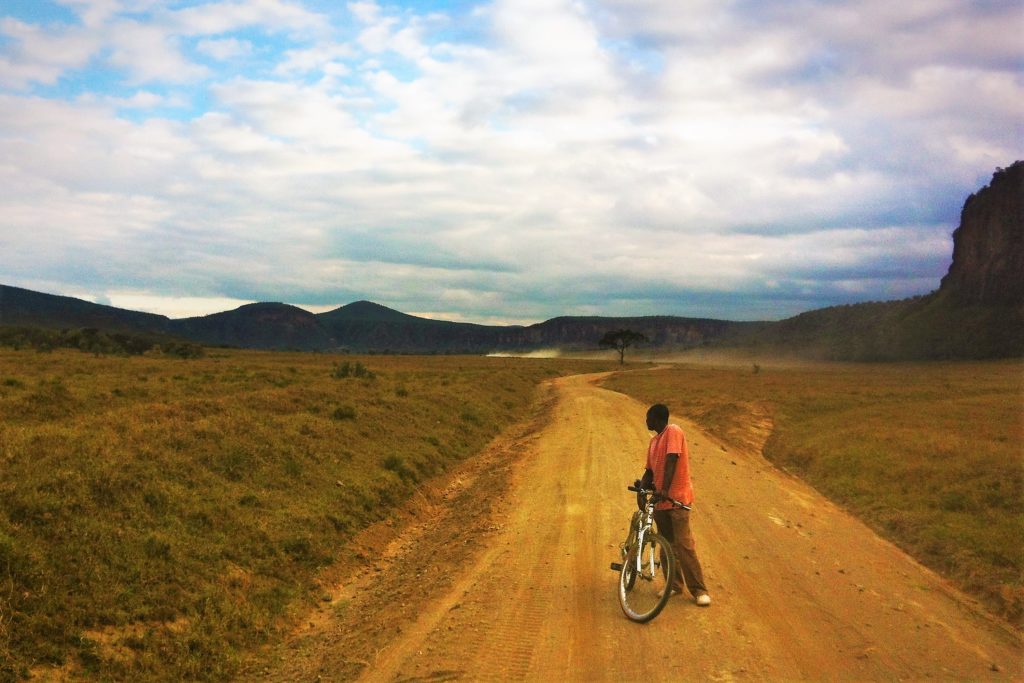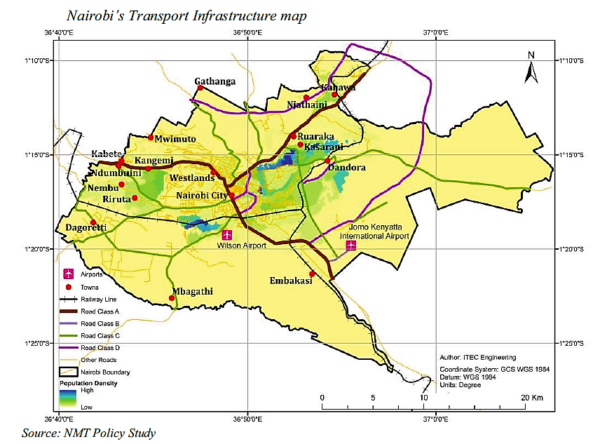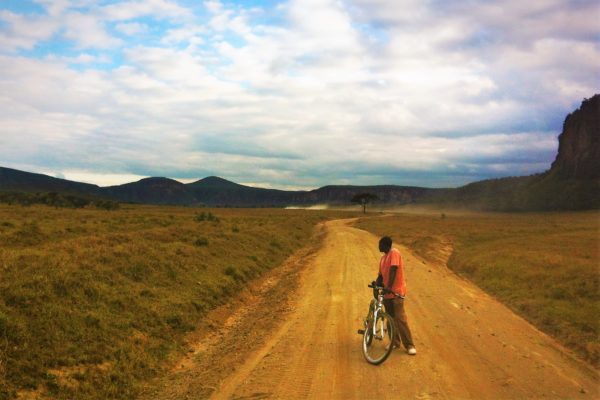Many casualties
Walking or cycling is environmentally friendly, inexpensive, promotes health and takes up very little space. In many places, it has a difficult position compared to car traffic, because the car is a status symbol and is considered a sign of progress and prosperity. Its importance for the economy is very big because, without motorized transport, trade in its current form would be impossible, remote places would be hard to reach and comprehensive supply would be inconceivable. But in many conurbations and metropolitan areas, the limits of the system have now been reached. An increase in non-motorized traffic could make a major contribution to overcoming the problems.
Pedestrians and cyclists are involved in an above-average number of fatal traffic accidents worldwide. However, the danger for non-motorized road users is highest in large African cities. In Kenya’s capital Nairobi, for example, pedestrians form the largest group of casualties in road traffic. According to official figures, the number of fatalities broke through the 1,000 marks for the first time in 2019. As in other major cities around the world, Nairobi’s urban planning has for decades neglected non-motorized traffic and has focused primarily on expanding the infrastructure for motorized traffic.
Share the Road
But Nairobi has already started to change the course by 2015. Together with the “Share the Road”-program of the United Nations Environment Program (UNEP), which aims to improve the situation of pedestrians and cyclists, the city has developed a transport policy specifically for non-motorized traffic. To reach the goal of improving the conditions for the most disadvantaged road users includes infrastructure measures such as the construction of sidewalks and means of traffic calming like 20 mph speed zones or swerving roads.
To show their seriousness, Nairobi’s officials decided that 20 per cent of the road construction budget must be spent on infrastructure for non-motorized and public transport. In the “Share the Road”-program, Nairobi is considered a good example in this respect, not only for Africa. The global north could also learn from this earmarking of funds. Yet the aim was not a competition between developing and industrialized countries, but above all, equity between the various road users.
Economic and Social Factors
However, only time will tell how successful and sustainable Nairobi’s new transport policy really is. Between 2013 and 2019, the number of registered motorized vehicles in the city has risen from two million to almost three million. Traffic jams and chaos are the order of the day, including the corresponding economical costs. According to the World Bank estimates, Nairobi loses half a million US-Dollar every day due to traffic jams.
From the perspective of the traffic planners in Nairobi, the promotion of non-motorized transport (NMT) is also about improving the quality of life of all inhabitants through better air and less noise. Besides, the Kenyans are to be relieved with cost savings, since NMT is generally cheaper. Through targeted promotion, the NMT will also improve accessibility by creating footpaths and cycle paths. Since the majority of lower-income groups depend on the NMT, the income situation there will also improve.
“Sidewalks are the only legitimate, democratic place where every Citizen is truly equal”
Besides social equity, the climate is also promoted. After all, poorer people all over the world suffer most from the environmental pollution caused by car traffic. The 2018 annual report of the “Share the Road”-program even states: “Footpaths are the only legitimate, democratic place where all Citizens are truly equal”.
Worldwide rethinking in urban and rural areas is necessary to contain climate change. Record levels of greenhouse gases are reported time and again. Instead of stagnating or declining, the emission of greenhouse gases is accelerating.
Kenya is not the only project in the “Share the Road”-program. If you want to know more about it and are interested in the developments in other countries of the global south just click here.



